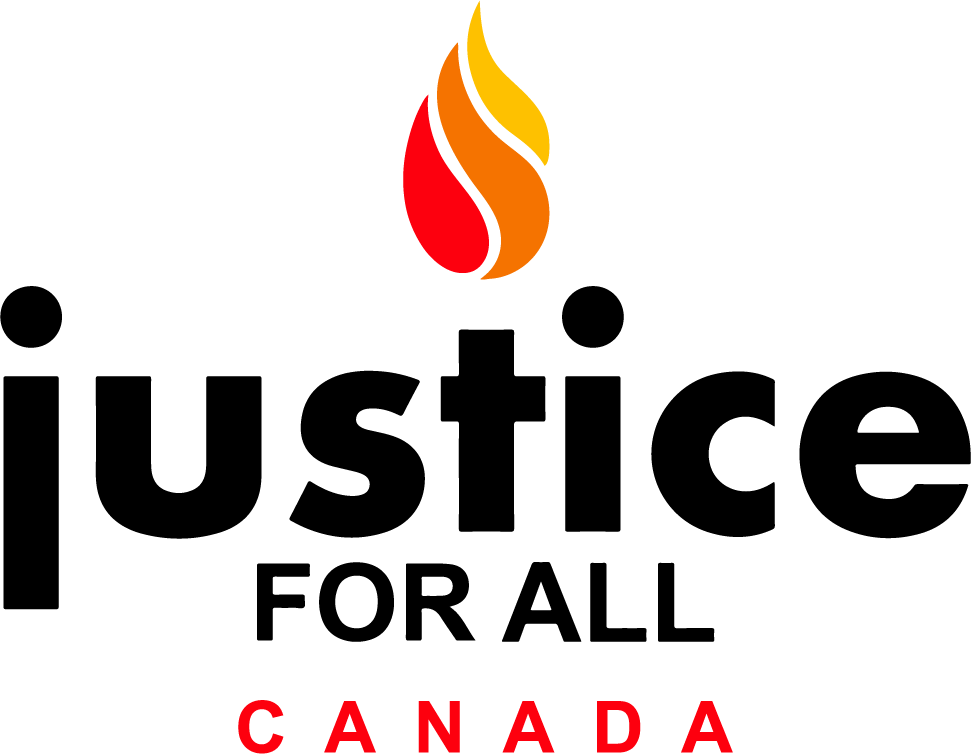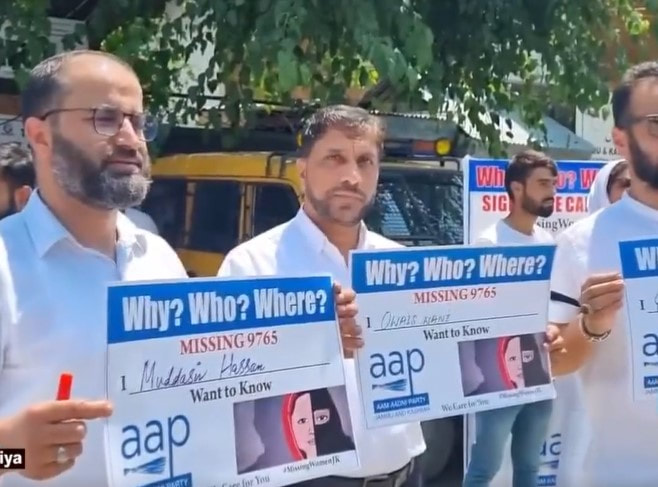|
Aam Aadmi Party (AAP) workers stage a protest demanding information about missing girls and women in Jammu and Kashmir, in Srinagar. Source @aapkamuddasir Author: Tazeen Hasan In the shadowed valleys of Kashmir, a deeply unsettling crisis has unfolded, hidden from the world's gaze for far too long. Startling statistics, disclosed by the Indian government in Rajya Sabha, have laid bare a harrowing truth: between 2019 and 2021, a staggering 9,765 women and girls disappeared from their homes in the region. [1] [2] This alarming figure marks a nearly three-fold increase compared to the preceding three years, underscoring an ominous trend that beckons for immediate international awareness and resolute action. One of the perplexing questions that demand answers are not just about these numbers but also about why the abductions remained concealed from global scrutiny for four long years. In this exploration, we delve into the harrowing reality of Kashmiri girls' abductions and the shroud of silence that enveloped them. The suppression of information and the stifling of voices in the region, often perpetuated through strict control of media and communication channels, created a veil of silence around these distressing incidents. The veil of silence shrouding the escalating abduction of Kashmiri girls for about four years can be attributed to a confluence of factors that have systematically silenced voices in the region since the revocation of autonomy. Kashmiris have been rendered utterly disenfranchised in the wake of this significant political shift. Journalists, integral to the dissemination of news, have been subjected to arbitrary detention under the draconian Public Security Act (PSA), a law that callously allows for detention without formal charges. Prominent journalists such as Fahad Shah, Asif Sultan, and Sajjad Gul have fallen victim to this oppressive measure, while others have been harassed to such an extent that they are compelled to erase their online presence. Silenced Voices on Social Media Surveillance and UAPA The heightened atmosphere of social media surveillance and the oppressive reach of the Unlawful Activities Prevention Act (UAPA) have emerged as critical factors stifling citizens' ability to report the abductions. The escalation of social media surveillance has cast a chilling effect on the freedom of Kashmiris to express their views and disseminate accurate information about the situation. Under the ambiguously worded UAPA, even the slightest expression of dissent can swiftly lead to imprisonment, making it a powerful tool of repression. In this climate, any semblance of dissent can be construed as a threat, potentially resulting in the confiscation or demolition of a dissenter's home. These circumstances create an immensely challenging environment in which to speak out against the abduction of girls in the valley, further highlighting the urgent need for international intervention and advocacy. "This clampdown extends to human rights defenders who now face increasing challenges in documenting violations. Khurram Pervez, the head of the Kashmir Coalition of Civil Societies, an organization that was documenting HR violations in Kashmir, has been arbitrarily detained for two years. Moreover, international scrutiny has been actively rebuffed, with Amnesty International expelled from India due to foreign funding regulations, the denial of entry to the U.S. Commission on International Religious Freedom (USCIRF), and even the restriction of a Pulitzer Prize-winning journalist Sana Matto from attending an award ceremony in the US. These tactics employed by the Indian regime have collectively disenfranchised Kashmir, thus concealing the distressing reality of the three-fold increase in the disappearances of Kashmiri girls in the valley over the past four years. As we unveil the shroud of silence that veiled the abduction crisis of Kashmiri girls for four long years, it becomes increasingly evident that the international community must act swiftly and decisively. The Canadian government, with its commitment to human rights and global justice, has a pivotal role to play. It is incumbent upon Canada to collaborate with the United Nations in initiating a comprehensive investigation into the grave human rights violations transpiring in the disputed region of Kashmir. Furthermore, Canada should fervently urge the Indian government to grant access to respected human rights organizations such as Amnesty International, Human Rights Watch, and the United Nations Office of the High Commissioner for Human Rights (UN OHCHR) within Kashmir. This access will empower these organizations to independently document and report on the ground, shedding light on the realities faced by the Kashmiri people and ensuring that those responsible for these atrocities are held accountable. The time to act is now, for justice, accountability, and the safeguarding of fundamental human rights in Kashmir. References
[1] "10,000 Women Have Gone Missing in Jammu and Kashmir From 2019 to 2021: Centre." Kashmir Observer, 28 July 2023, Link. [2] "Amnesty International Halts Work in India, Citing Witch Hunt by Government." NPR, 29 September 2020, Link. [3] "India's Crackdown on Kashmir: What You Need to Know." BBC News, Link. [4] "India, U.S. Sign Military Agreement Amid China Tensions." Reuters, Link. [5] "Nearly 10K Women, Girls Go Missing in Kashmir, Sparking Alarm." VOA News, Link. [6] "India Sends Thousands More Troops to Restive Kashmir." VOA News, Link. [7] "J&K High Court Quashes Detention of Journalist Fahad Shah, Orders Set at Liberty." Outlook India, Link. [8] "Journalists Arrested in Indian-Administered Kashmir." The New York Times, 16 April 2022, Link. [9] "Opinion | India's Assault on Press Freedom in Kashmir." The New York Times, 8 March 2023, Link. https://www.kashmiraction.org/the-case-of-journalist-asif-sultan/ https://thewire.in/media/sajad-gul-kashmir-journalist-psa https://www.aljazeera.com/news/2022/1/18/kashmir-journalist-sajad-gul-arrested-psa-jammu-jail |

